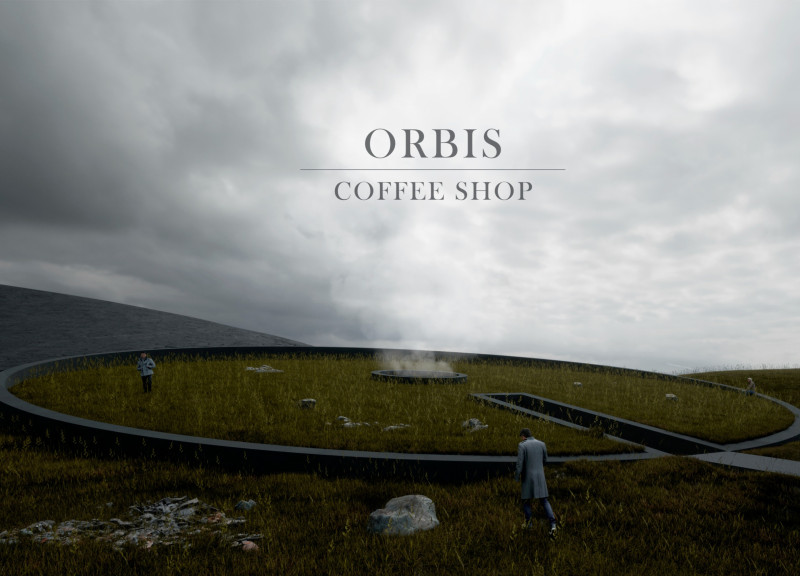5 key facts about this project
The Orbis Coffee Shop is located beside the Hverfjall volcano in Iceland, serving as a space for visitors to relax and enjoy the views. The design focuses on blending with the natural landscape, utilizing a cylindrical shape that complements its surroundings while providing practical benefits. The walkable roof acts as a lookout point, encouraging users to take in the impressive volcanic scenery.
Architecture Concept
The building's cylindrical form not only enhances its visual appearance but also ensures durability. The walkable roof extends from the ground plane and creates an inviting space for exploration and interaction. Positioned at the highest point is the main entrance, which draws visitors into an interior organized around a clear circulation path. This path leads to several functional areas, such as the coffee shop and exhibition center, all while prioritizing views from the south-facing glazed facade.
Environmental Integration
The design places a strong emphasis on environmental integration and the efficient use of natural resources. The south-facing orientation captures sunlight to illuminate the interior, improving the overall experience for visitors. Incorporating a thermal water fountain adds to the comfort within the building, providing a semi-heated area that is especially pleasant during colder months. This thoughtful connection to the natural environment underscores the building's role as a resting point amidst the dramatic landscape.
Material Selection
Careful consideration has gone into the choice of materials used for the Orbis Coffee Shop. Elements like thermal insulation and hermetic triple glazing work together to improve energy efficiency while maintaining a focus on the structure’s performance. Geothermal energy systems further support this goal, allowing the building to blend with its surroundings while providing necessary services.
One notable detail is how the building is designed to be partially buried, which helps in conserving energy and creating visual interest. This design feature allows the structure to maintain a strong connection to the landscape, reinforcing its purpose as a destination for those seeking respite in the beautiful setting of Iceland.






















































